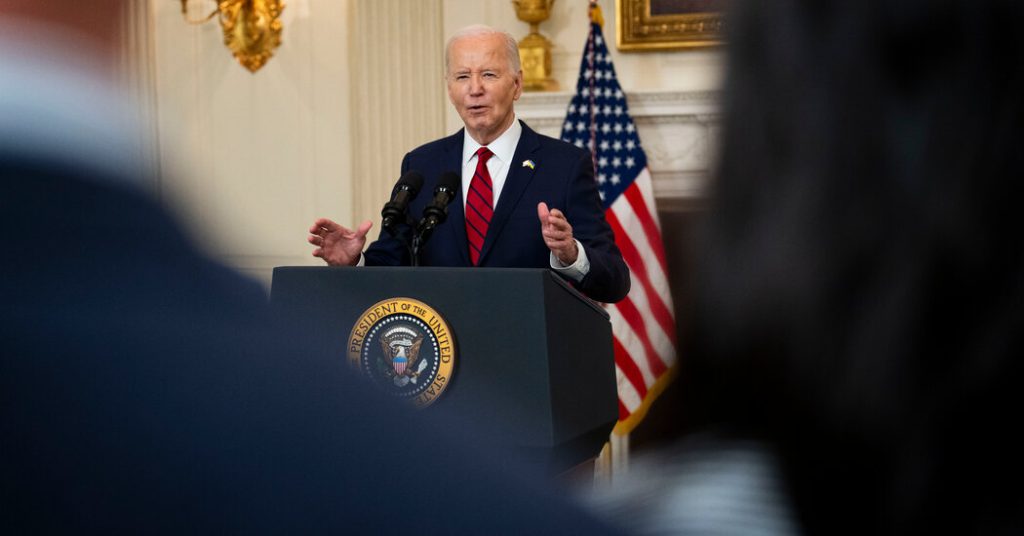President Biden signed a $95.3 billion package of aid to Ukraine, Israel, and Taiwan, reaffirming U.S. support for Kyiv in the fight against Russia’s military assault. The package was approved by an overwhelming majority in the Senate, signaling bipartisan support for the White House’s foreign policy efforts. The president expressed the importance of the aid in promoting world peace and enhancing America’s security and leadership on a global scale. Despite facing challenges and delays in the legislative process, Mr. Biden commended the efforts made to ensure the aid reached those in need.
Mr. Biden’s critics on the left have voiced concerns about his support for Israel in the war in Gaza, which has resulted in significant casualties and a humanitarian crisis. The president emphasized his commitment to Israel’s security and reiterated the need for aid to reach all Palestinians in Gaza swiftly. The aid package includes $1 billion for humanitarian assistance in Gaza, alongside support for Israel and other allies. The legislation highlights the complexities and challenges of balancing foreign policy priorities in the face of global conflicts.
The White House’s efforts to secure the aid package involved navigating political obstacles, including opposition from some members of Congress and former President Trump. Delays in providing aid to Ukraine were acknowledged to have put the country at a disadvantage in its conflict with Russia. The Biden administration engaged in strategic communications with lawmakers and leveraged intelligence briefings to underscore the urgency of the aid. As tensions escalated and progress stalled, top officials took steps to maintain pressure and win over critical allies in Congress.
The aid package, consisting of support for Ukraine, Israel, and the Indo-Pacific region, comes at a crucial juncture in global geopolitics. The bill also includes sanctions against Iranian and Russian officials, reflecting the United States’ commitment to upholding international norms and security. The inclusion of a provision for a nationwide ban on TikTok signals a broader concern about cybersecurity and emerging threats in the digital landscape. The White House’s focus on strategic deterrence and support for allies underscores the administration’s foreign policy priorities.
The aid package’s successful passage is seen as a significant achievement for the Biden administration and highlights the importance of U.S. leadership in addressing global challenges. The president’s dedication to advancing peace, security, and humanitarian assistance in conflict zones demonstrates a commitment to upholding American values and principles on the world stage. The complex negotiations, political maneuvering, and bipartisan collaboration required to secure the aid underscore the challenges and opportunities facing U.S. foreign policy in an increasingly interconnected world.
Despite facing criticism and obstacles, President Biden’s signing of the aid package represents a significant milestone in U.S. foreign policy efforts. The package’s provisions for critical allies and humanitarian assistance demonstrate a commitment to promoting stability, security, and peace in regions facing conflict and crisis. The administration’s strategic approach to securing the aid reflects a broader vision for America’s role in the world and the importance of upholding international norms and values. As the United States navigates complex global challenges, the aid package signals a continued commitment to supporting allies, addressing humanitarian needs, and advancing diplomatic solutions to enhance global security.















